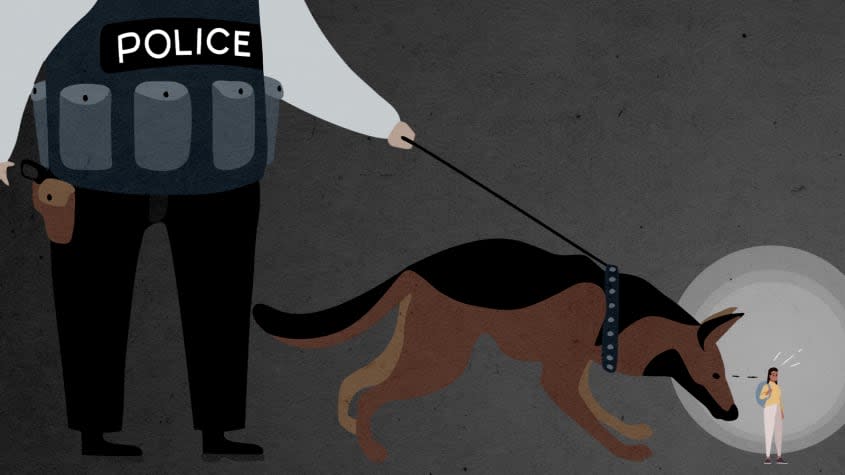The absurdity and incoherence of security theater at the stadium

My personal superpower is that I always somehow pick the slowest line to stand in. I had occasion to muse on this fact on Sunday night ahead of a concert at New York's United Palace Theatre, when I hopped over to what appeared to be the shorter bag-check queue — only, inevitably, to end up behind someone who wanted to argue with the security guard over the venue's bag policy. Just my luck.
But my irritation at the hold-up turned into astonishment as I eavesdropped on the conversation: The guard was telling the ticketholder she couldn't enter unless she threw away her Ricola cough drops.
Now, I'm not a security expert, but it's hard to imagine how cough drops endanger to anyone's safety at a concert. (Examining the venue's lengthy list of prohibited items later, my only guess is that they qualified as "drugs.") But it's also not the first time I've been astonished at the strict — and arbitrary and out-of-control — bag policies at stadiums.
Anecdotally, if anything, they seem to be getting more egregious. Last year, I was almost denied entry to an Arizona Diamondbacks game when the guard insisted on measuring my iPhone-sized clutch (I passed, but just barely). I'm already in the process of shopping for a semi-stylish see-through bag just so I can be allowed into Mets games this season with my phone, keys, pencil, and scorebook.
Yes, stadiums are a place where security ought to be high. But culturally, we're perhaps unduly haunted by fears of bags, from the backpack that smuggled the weapon into Columbine High School to the pressure cooker bombs hidden near the Boston Marathon finish line. But today's increasingly elaborate bag policies are largely a case of security theater. It also unfairly targets women (who tend to be the primary carriers of bags even in mixed-gender groups and whose clothes have smaller pockets for accommodating things like keys or large smartphones); new parents (diaper bags); and people with special needs or disabilities who need to bring along extra gear.
It's not even evident that bag policies work. "Let's be honest: There's one hundred ways to bring a gun or a knife into an NFL stadium, and no clear bag is going to stop that," one commenter told Sports Illustrated in 2019. "If two boys can sneak into the Super Bowl and make a YouTube video documenting it, I'm pretty sure someone can sneak a weapon in." Another grumbled, "You can carry a purse on an airplane, but you can't bring it into a football game." Both are fair points.
And while a small or clear bag might ostensibly speed up the screening process to get into the venue, clear bags still need to be "searched" like an opaque bag would be: "You have to look inside to see if anything contains a firearm," Michael Dorn, the executive director of the school safety nonprofit Safe Havens International, explained to Bloomberg in relation to schools adopting clear bag policies. Besides — as Bloomberg goes on to elucidate — "pistols and knives can be hidden in transparent bags just as easily as tampons can … [i]nside tennis shoes, or wrapped up in T-shirts."
The bizarrely restrictive rules about what otherwise normal items you can put inside those bags are no better, and those unintuitive distinctions further complicate the search process. Is that unmarked blister pack holding forbidden Benadryl or acceptable chewing gum? We'll have to check.
There have been too many tragedies at mass gatherings to skip stadium security altogether. But that doesn't mean anything and everything is reasonable, and bag policies in America have crossed the line. I should be able to attend a concert or baseball game with more than a glorified ziplock. Because where else would I keep my Ricola?
You may also like
Colin Kaepernick won't make it as a backup in the NFL
The sinking of Russia's flagship might be a bad sign for the U.S. Navy

